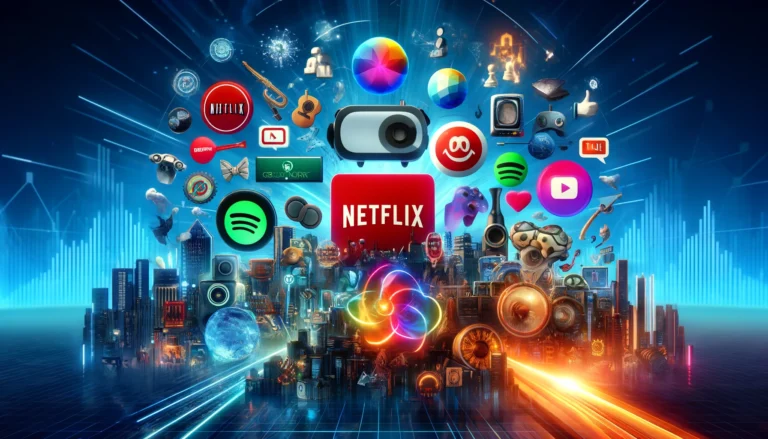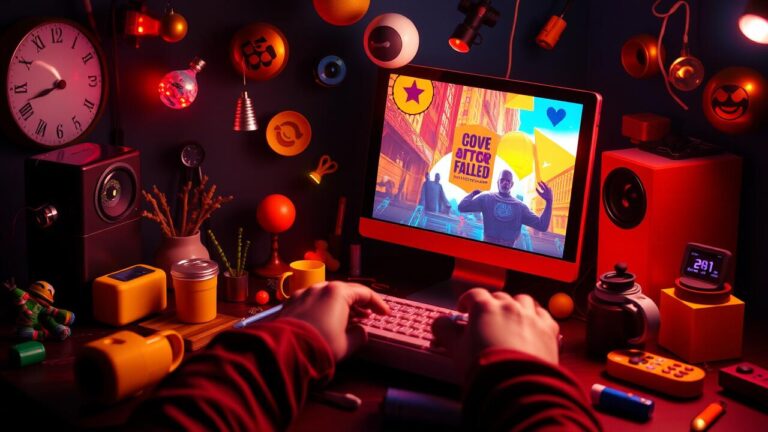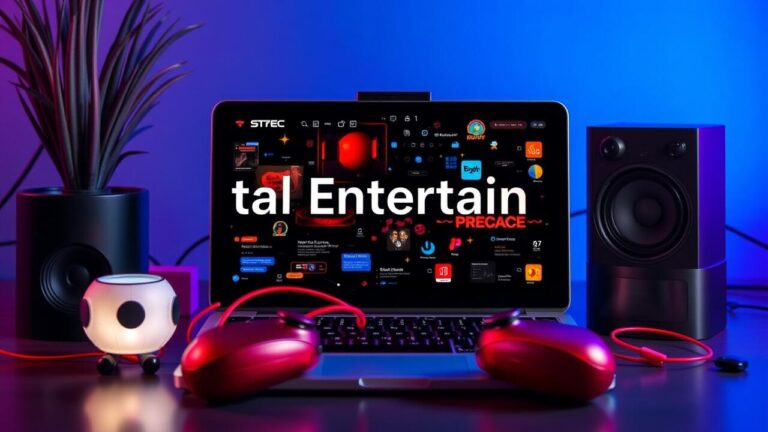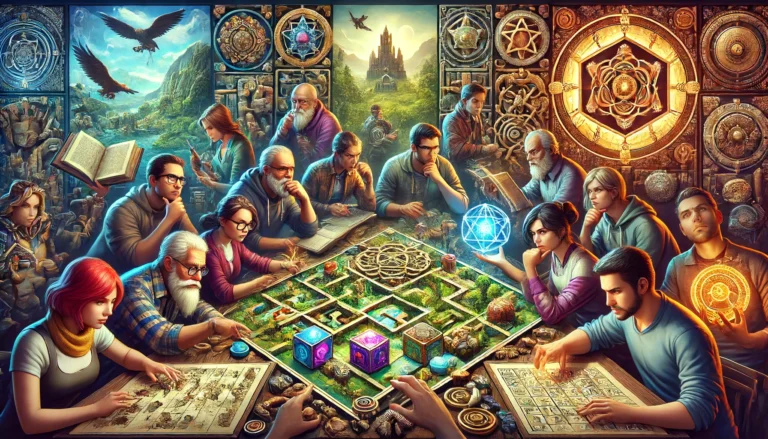The Evolution of Entertainment in the Digital Age
In the past few decades, the landscape of entertainment has dramatically transformed due to the advent of digital technology. The availability and accessibility of these technologies have led to a shift from traditional forms of entertainment like concerts, outdoor games, and theatre shows to a more immersive and interactive digital entertainment. Markedly, this evolution kicked off with the introduction of televisions and radios in homes, but it was the internet revolution that played a pivotal role in shaping modern-day entertainment. The internet presented an array of new entertainment platforms such as online gaming, streaming services, social media, and virtual reality experiences. These platforms offered content that was not only engaging but also easily accessible at any time from any place. This transition was further pushed by high-speed internet connections and sophisticated devices capable of delivering top-notch audio-visual performances right at users’ fingertips. As a result, digital entertainment has become an integral part of our lives – whether we are waiting in line or relaxing at home. The impact of this digital revolution on society is vast. Notably, it has reshaped how we consume information and interact with each other. For instance, people now have the ability to share their opinions about shows or movies instantly through social media platforms. Furthermore, artists can directly connect with their fans without geographical restrictions. This real-time interaction between consumers and creators has allowed for more personalized experiences. Yet despite these advancements, the rapid pace at which technology continues to evolve suggests that the face of digital entertainment will continue to change in ways we can only imagine.
Technological Advancements: Shaping the Landscape of Modern Entertainment
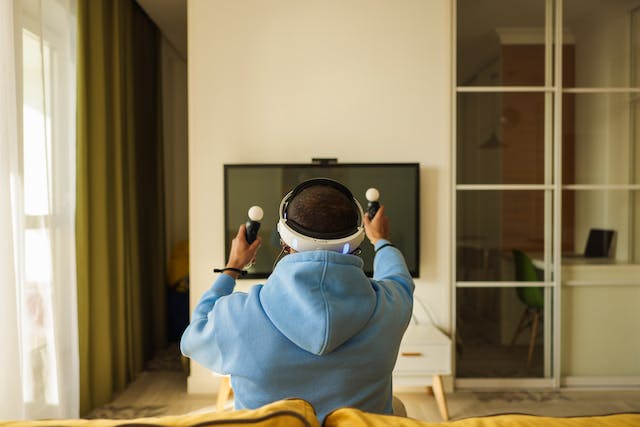
Technological advancements have been instrumental in shaping the evolution of entertainment. They have not only transformed how we consume content but also how it is created, distributed, and marketed. For instance, with the advent of smartphones and tablets, consumers can now enjoy their favorite shows, movies, or music on-the-go. These devices offer high-resolution displays and superior audio quality that enhances our viewing or listening experience. Moreover, they provide unlimited access to a plethora of content via various streaming platforms such as Netflix, Spotify or YouTube. Progress in technology has also empowered creators by providing them with advanced tools for content creation. With state-of-the-art cameras, sound equipment and editing software available at cheaper prices than ever before, anyone with a creative idea can produce high-quality content from the comfort of their homes. This democratization of content production has led to an explosion of user-generated content across all platforms – from short videos on TikTok to podcasts on SoundCloud. The impact of these technological advancements extends beyond consumption and production; it also influences distribution and marketing strategies. Before the digital era, creators had to rely on traditional media outlets like television networks or film studios to distribute their work. However, today’s digital platforms offer creators direct access to audiences worldwide without any intermediaries. These platforms also provide detailed analytics about viewer behavior and preferences which help creators in tailoring their content effectively to meet audience demands. It’s fascinating that technology will continue to shape the landscape of modern entertainment in unprecedented ways as we move forward into the future.
Defining Online Platforms and their Influence on Society
Online platforms, also known as digital platforms or media platforms, are internet-based applications or websites that facilitate the creation and exchange of user-generated content. These platforms range from social media sites like Facebook and Instagram to video-sharing sites like YouTube and Vimeo, music streaming services like Spotify and Apple Music, to name a few. They have essentially become a part of our daily lives – we use them for communication, entertainment, information, and even shopping. The influence of these online platforms on society is enormous. Firstly, they have revolutionized the way we consume content. We no longer need to be at home in front of our televisions at a specific time to watch our favorite shows; we can view them anytime and anywhere as long as we have an internet connection. Similarly, we don’t need to purchase physical copies of music albums or movies anymore; we can simply stream them online via various platforms. This shift towards on-demand consumption has not only provided us with unprecedented convenience but also broadened our choices in terms of what we can watch or listen to. Moreover, online platforms have significantly impacted social dynamics by enabling real-time interaction between creators and consumers. For instance, fans can now directly engage with their favorite artists on Twitter or Instagram – something that was unimaginable before the digital era. Likewise, viewers can leave comments on YouTube videos or podcasts providing immediate feedback to creators which further fosters a sense of community among users around shared interests. Thus it’s clear how these digital avenues are shaping societal interactions in profound ways while continually redefining the parameters of modern entertainment.
The Psychological Effects of Immersive Entertainment Experiences
Immersive entertainment experiences, such as virtual reality games or 3D movies, are designed to captivate audiences by making them feel part of the action. This immersive quality is achieved through advanced technology that simulates a realistic environment, engaging multiple senses simultaneously. The level of engagement and sensory stimulation offered by these platforms can lead to intense emotional responses, often heightening the overall entertainment experience. As a result, users may find themselves more emotionally connected to the content they consume, increasing their investment in the narrative or gameplay. On the flip side, this powerful sense of immersion can also have negative psychological effects. Some studies suggest that prolonged exposure to immersive digital environments may lead to symptoms similar to addiction. Users might become so engrossed in these virtual worlds that they neglect their real-world responsibilities and relationships – a phenomenon known as ‘digital escapism’. In extreme cases, individuals might even struggle to distinguish between their online and offline lives leading to a blurred sense of reality. Notwithstanding these potential drawbacks, it’s important to note that immersive technologies also hold immense potential for positive psychological impact. For instance, Virtual Reality (VR) has been used successfully in therapeutic settings for treating conditions like post-traumatic stress disorder (PTSD) and anxiety disorders. It allows patients to confront their fears in a controlled environment under expert supervision which greatly aids their recovery process. Therefore, while we need to be cautious about the pitfalls of excessive immersion in digital entertainment, we must not overlook its capacity for bringing about beneficial change either.
Role of Social Media in Proliferating Virtual Amusement
The advent of social media has undeniably played a pivotal role in the spread and popularity of digital entertainment. Platforms such as Facebook, Instagram, Snapchat, and Twitter have opened up vast avenues for virtual amusement to reach a broader audience. This is not merely limited to sharing videos or music but also encompasses interactive games, live-streaming events, virtual reality experiences shared through posts or stories, and much more. These platforms act as conduits enabling an all-encompassing integration of entertainment into daily life. Moreover, social media sites serve as powerful tools for marketing and promoting digital entertainment content. For instance, trailers for new video games or upcoming movies are frequently disseminated through these channels long before their official release dates. This not only builds anticipation amongst prospective consumers but also provides feedback avenues for creators. Additionally, influencers and celebrities often utilize their substantial follower base on these platforms to endorse various forms of digital entertainment which further boosts their outreach. Social media’s impact goes beyond just proliferation; it has essentially reshaped our consumption patterns of digital amusement. It fosters a sense of community among users who share similar interests – be it fans discussing the latest episode of a popular series or gamers sharing tips and strategies. These virtual communities often become spaces for collective enjoyment and interaction around shared digital experiences. Therefore, social media is not just spreading virtual amusement but also creating an environment that makes it more engaging and personal for users around the globe.
Impact of Streaming Services on Viewing Habits and Lifestyle
In recent years, the rise of online streaming services such as Netflix, Hulu, Amazon Prime Video, and Disney+ has dramatically impacted viewing habits and overall lifestyle. These platforms offer on-demand entertainment, allowing users to watch their favorite shows or movies anytime and anywhere. This convenience and flexibility have significantly shifted the traditional model of scheduled programming towards a more consumer-centric approach. Viewers no longer need to tune in at specific times; instead, they can binge-watch series or enjoy films at their own pace. Further to this, the proliferation of streaming services has led to a surge in original content creation. They regularly invest in producing exclusive shows and movies that are only accessible on their respective platforms. This strategy not only adds value for subscribers but also sparks competition among these providers to continuously innovate and improve their offerings. As a result, we are seeing an era of ‘Peak TV’ where high-quality content is abundant, leading to what some refer to as the ‘Golden Age’ of television. The influence of streaming services extends beyond merely altering viewing habits; it also impacts our lifestyle choices. The ‘binge-watching’ culture promoted by these platforms encourages prolonged screen time which can affect sleep patterns and physical health. Moreover, the easy accessibility of diverse content promotes cultural exchange as viewers can explore narratives from different parts of the world without leaving their homes. Therefore, while streaming services undoubtedly enrich our entertainment experience with vast choices and flexibility, they also necessitate awareness about mindful consumption in this digital age.
Interactive Gaming: Its Growth and Influence on Youth Culture
Interactive gaming is another facet of digital entertainment that has seen significant growth over the past decade. With advancements in technology, video games have evolved from simple pixel-based graphics to immersive experiences with high-definition visuals and complex narratives. This progression has expanded the demographic of gamers beyond young children to include adults and seniors as well. The advent of multiplayer online games like Fortnite or PUBG has further revolutionized the gaming landscape by fostering a sense of community among players worldwide through real-time interaction and cooperation. In addition, interactive gaming has had a profound impact on youth culture. Today’s generation of youth, often referred to as ‘digital natives,’ are growing up in an era where video games are not just a form of entertainment but also a medium for social interaction. Online platforms allow them to connect with friends and engage with others who share similar interests, creating virtual communities that transcend geographical boundaries. Moreover, competitive e-sports tournaments offer opportunities for gamers to showcase their skills on an international platform, contributing to the rising recognition and acceptance of gaming as a legitimate sport. However, while interactive gaming offers numerous benefits such as improved hand-eye coordination, strategic thinking, and teamwork skills; it is essential to be mindful of its potential downsides. Excessive gaming can lead to addictive behaviors and adversely impact physical health due to prolonged periods of sedentary activity. Additionally, online gaming environments may expose young gamers to inappropriate content or cyberbullying. Therefore, it’s crucial that parents monitor their child’s gaming activities and establish healthy boundaries around screen time while promoting balance with other aspects of life such as academics and physical activities.
How Digital Innovations Have Altered Live Performances and Events
The advent of digital technologies has brought about a significant shift in the way live performances and events are conducted. In the past, attending a live performance meant physically being present at the venue. However, with the rise of streaming platforms and virtual reality technology, audiences can now experience concerts, theater performances, or sports events from their living rooms. This innovation has allowed artists and performers to reach a global audience beyond geographical boundaries. Moreover, digital tools have revolutionized how performances are staged and experienced. Augmented Reality (AR) and Virtual Reality (VR) have added an immersive dimension to live events. These technologies create interactive experiences that transcend the traditional passive viewing model. For instance, spectators can virtually walk around a music festival or view a theater performance from different angles, enhancing their engagement and participation. However, this shift towards digital consumption of live events is not without its drawbacks. While it increases accessibility for audiences worldwide, it also raises questions about the survival of traditional venues like theaters or concert halls which rely heavily on physical attendance for revenue generation. Furthermore, despite technological advancements providing high-quality audio-visual experiences, they cannot fully replicate the unique atmosphere and shared communal experience that comes with physically attending live events. Thus while embracing these digital innovations is crucial for broadening access to arts and entertainment; balancing this with supporting traditional event spaces will be essential moving forward.
The Legal and Ethical Implications of Online Entertainment Consumption
The advent of digital entertainment platforms has undoubtedly revolutionized the way we consume media. However, this shift has also introduced several legal and ethical issues that modern society must grapple with. One of the most pressing concerns is that of piracy and copyright infringement. Digital platforms have made it incredibly easy for users to share, copy, or distribute copyrighted content without proper authorization. This not only undermines the work of content creators but also leads to significant financial losses in the entertainment industry. Transitioning to the topic of user privacy, online entertainment consumption often involves sharing personal information with platforms and service providers. From streaming preferences to payment details, users entrust these platforms with a wealth of sensitive data. While many platforms assert that they prioritize user privacy, there have been instances where such information has been misused or inadequately protected, leading to breaches of trust and potential legal ramifications. Lastly, digital entertainment also raises ethical questions around content moderation and censorship. Online platforms are global spaces where diverse audiences converge. Content that might be acceptable in one cultural context could be offensive or harmful in another. Therefore, striking a balance between maintaining freedom of expression and protecting users from potentially harmful content is an ongoing challenge for these platforms. These legal and ethical implications underscore the need for robust policies and regulations in managing online entertainment consumption while ensuring a safe and respectful environment for all users.
Transformation of Cultural Norms due to Virtual Amusement Platforms
The advent of digital entertainment has not only revolutionized how we consume media but has also significantly impacted our cultural norms. The ubiquity of virtual amusement platforms, such as Netflix, YouTube, and various social media networks has greatly influenced our perceptions and interactions with the world around us. As we spend more time on these platforms, they become a source of information, education, and socialization – shaping our attitudes, values, and behaviors. This shift often reflects in our day-to-day lives – affecting everything from our communication styles to our lifestyle choices. Yet another profound impact is the democratization of content creation. In the traditional media landscape, content production was largely confined to established entities like studios or publishing houses. However, digital platforms have broken down these barriers enabling anyone with internet access to create and share content. This user-generated content often mirrors societal trends or issues thereby influencing collective thought processes and societal norms. Moreover, it fosters a more diverse and inclusive entertainment environment where marginalized voices can find representation. While these developments have been largely positive, they also present challenges. For instance, the rise in screen time due to increased use of digital platforms raises concerns about physical health and mental well-being. Similarly, while user-generated content promotes diversity, it may also propagate misinformation or harmful ideologies due to lack of stringent control measures. Therefore, society must navigate these changes keeping in mind both their advantages and potential pitfalls without compromising on ethical standards or inclusivity.
FAQ’s
Q: What is the significance of digital entertainment in modern society?
A: Digital entertainment has become a fundamental part of modern society, influencing how we communicate, learn, and relax.
Q: How has digital entertainment reshaped communication?
A: Digital entertainment platforms have enhanced interactive communication, allowing people to share and discuss content in real-time.
Q: In what ways does digital entertainment impact learning?
A: Digital entertainment has transformed learning by making it more entertaining, interactive, and accessible through educational games, virtual reality, and online platforms.
Q: How does digital entertainment influence our leisure time?
A: It provides a variety of options for relaxation and entertainment, from streaming movies and music to playing video games and using social media.
Q: What are some negative impacts of digital entertainment on society?
A: Some negative impacts include the potential for addiction, negative impact on physical health due to sedentary lifestyle, and the risk of misinformation spreading via digital platforms.
Q: How has digital entertainment changed the entertainment industry?
A: Digital entertainment has revolutionized the industry by introducing online streaming platforms, digital downloads, and interactive gaming, which have significantly changed content production, distribution, and consumption.
Q: What role does digital entertainment play in shaping cultural norms?
A: Digital entertainment often reflects and shapes cultural norms and values, influencing societal attitudes and behaviors through the content it presents.
Q: Can digital entertainment be used as a tool for social change?
A: Yes, it can be a powerful tool for social change, as it reaches a wide audience and can be used to raise awareness about various social issues.
Q: How is digital entertainment influencing the economy?
A: Digital entertainment contributes significantly to the economy by creating jobs, generating revenue, and driving technological innovation.
Q: How can one manage the negative effects of digital entertainment?
A: One can manage the negative effects by setting boundaries for screen time, promoting physical activity, and ensuring the consumption of balanced and informative content.

